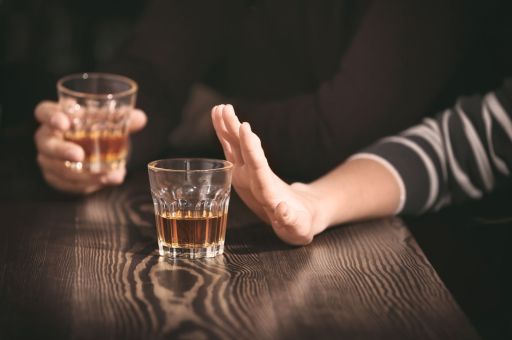CAEB, PIMEM and ACOTUR join the POQIB strategy, led by Health, not to serve alcohol to minors.
The first 15 trainers have already been trained and will give training to staff, managers and heads of establishments.
The Balearic Islands are taking a new step towards the goal of responsible dispensing of alcoholic beverages. This strategy responds to a public health need: alcohol should not be sold or dispensed to vulnerable people such as minors, pregnant women or people who show signs of drunkenness or who have to drive.
TDB keeps you informed. Follow us on Facebook, Twitter and Instagram
Health and the leisure industry promote the training of the staff of these premises for responsible dispensing of alcohol
Until now, preventive actions and actions have focused on the municipalities, specifically on local festivals, with the involvement of the local councils, and in the educational field. The business sector is adhering to the training strategy for the responsible dispensing of alcohol and the first 15 trainers have already been trained who, in a second phase, will train staff, managers and heads of establishments that sell and dispense alcoholic beverages.
The councillor for Health, Manuela García, thanked the leisure industry for taking part in this initiative and for joining in this training, one of the main objectives of which is to protect minors from alcohol consumption.
With this commitment to training, CAEB (Catering Federation; Hotel and Catering Federation; Balearic Leisure and Entertainment Association, ABONE; Association of Training Companies) PIMEM and ACOTUR (Association of Traders and Tourist Service Companies of Mallorca) show their commitment and awareness to dispense alcoholic beverages responsibly and implement quality measures to ensure the health, safety and well-being of underage people and all customers.
Specifically, this first phase of training was aimed at professionals from training consultancies with experience in the commercial and industrial sectors (retail, catering, hospitality, nightlife and supermarkets) and teams of trainers from participating organisations and industry bodies, as well as vocational training teachers from the hospitality and catering sector. The 20 hours of training covered legislation, the role of professionals in the sector as health agents, risk prevention strategies, communication skills and rules and guidelines for action in the event of an emergency. The training is funded by the Directorate General for Mental Health through the Balearic Islands Addiction and Drug Dependency Plan (PADIB).
This training is accredited by the National Plan on Drugs and the Regional Ministry of Health and validates as a DRA trainer.
The DRA training is an initiative of the Balearic Islands Quality Leisure Platform (POQIB), led by the Balearic Islands Addictions Plan (PADIB), part of the General Directorate of Mental Health. The aim of this platform, which brings together administrations, industry and civil society, is to develop initiatives, programmes and actions that contribute to reinforcing public health promotion messages in the Balearic Islands and to keep minors away from alcohol consumption, as well as protecting them from the dangers it entails. Responsible Alcohol Dispensing (ARD) is one of the actions being promoted.
The industry sector has been linked to POQUIB since its inception and now joins the DRA training from the perspective of corporate social responsibility. The social responsibility of the industry has adapted to the new needs of health, sustainability and safety that require the Balearic Islands to become a model of society that promotes quality leisure.
The data on alcohol consumption among minors over the last three decades has remained constant, with high figures that reflect a very dangerous trivialisation of the consumption habit. According to the ESTUDAS-IB 2022-2023 survey, more than 70% of adolescents in the Balearic Islands consume alcohol; 75.9% of students aged 14-18 have consumed alcohol at some time in their lives and more than 50% have done so in the last year. The age at which consumption begins is 14 years old in both sexes. The survey also shows that availability is very high in our society: 91% of those surveyed say that they can get alcohol easily or very easily and that they buy it in places or establishments, even if it is not allowed to be sold to minors.
